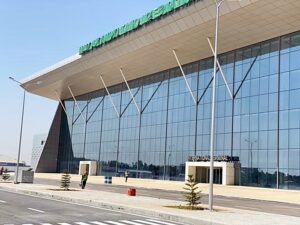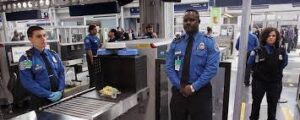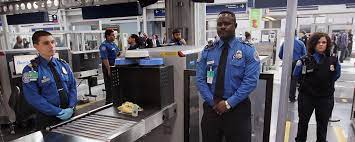
The airports must do more to safeguard travellers’ belongings
In 2019, the late President Muhammadu Buhari intervened when a young Nigerian student, Miss Zainab Aliyu, was implicated in a drug trafficking case in Saudi Arabia. Then a student of Maitama Sule University, Kano, Zainab was arrested after a banned drug, tramadol, was found in her bag. She insisted it was planted in her luggage by unknown persons. Her father, Mr Habib Aliyu appealed to the federal government, the Saudi authorities and the international community to save his daughter from being executed unjustly, as trafficking is a capital offence in Saudi Arabia. At the end, Zainab was spared because she was later discovered to be a victim of a cartel that specialised in keeping hard drugs in travellers’ bags at the Mallam Aminu Kano International Airport in Kano.
Even though the National Drugs Law Enforcement Agency (NDLEA) made some arrests at the time, it is now clear that the agency merely scotched the snake but failed to kill it. Some members of this gang or their successors operating at the airport were recently arrested by the NDLEA. In the various reports that followed the previous arrest, it was not clear if justice was served on the culprits. This may have been the reason why the illicit business has continued till the recent incident.
The lives of three innocent Nigerians are now at the mercy of Saudi Arabia authorities. It is hoped that the NDLEA will make concerted efforts, as it has promised, to ensure they are freed. The agency has confirmed in its investigation that the bags containing the illicit substances intercepted in Saudi Arabia were checked in against the names of the three innocent Nigerian pilgrims, and all the bags were traced to the supposed leader of the syndicate.
The existence of the drugs trafficking syndicate for years at the Kano airport is an indictment on the airport management, the handling companies and other service providers who process passengers and luggage at the airport. The Federal Airports Authority of Nigeria (FAAN) Aviation Security (AVSEC), which oversees passenger and luggage screening should take the blame. An insider threat in airport security is when a trusted individual with authorised access, such as an employee or contractor, intentionally or unintentionally exploits their position to cause harm, which can include sabotage, theft, data breaches, or facilitating terrorism. The officials at the handling companies who facilitated the tagging of the bags to other passengers clearly exemplify the insider threat, which is dangerous to safety and security at the airports.
Earlier investigations carried out by THISDAY confirmed that personnel of some companies that work at the airports are collaborators in the drug syndicates. They are usually induced with money, as the current case has revealed. There should be a periodic profiling of workers who provide services at the critical areas of the airport like the airside.
In collaboration with national security agencies, FAAN should engage in comprehensive personnel security checks, profiling the background of the airport personnel and engaging in continuous training of the staff. Using modern technology, the handling companies should embark on physical and cyber security examination of its staff and encourage the culture of awareness and information sharing among security operatives at the airports.

This is critical because airports are windows through which the world evaluates every country. Saudi Arabia or any other country can use these incidents to introduce stringent visa conditions against Nigerians. To avert future security breaches, concerned authorities should reinforce the airports with trained security personnel, deploy modern security equipment, including CCTV, for pre-emptive measures. We also call on FAAN to profile on regular basis those that it gives On Duty Cards which enable them to access the sensitive parts of the airports.
THISDAY EDITORIAL






